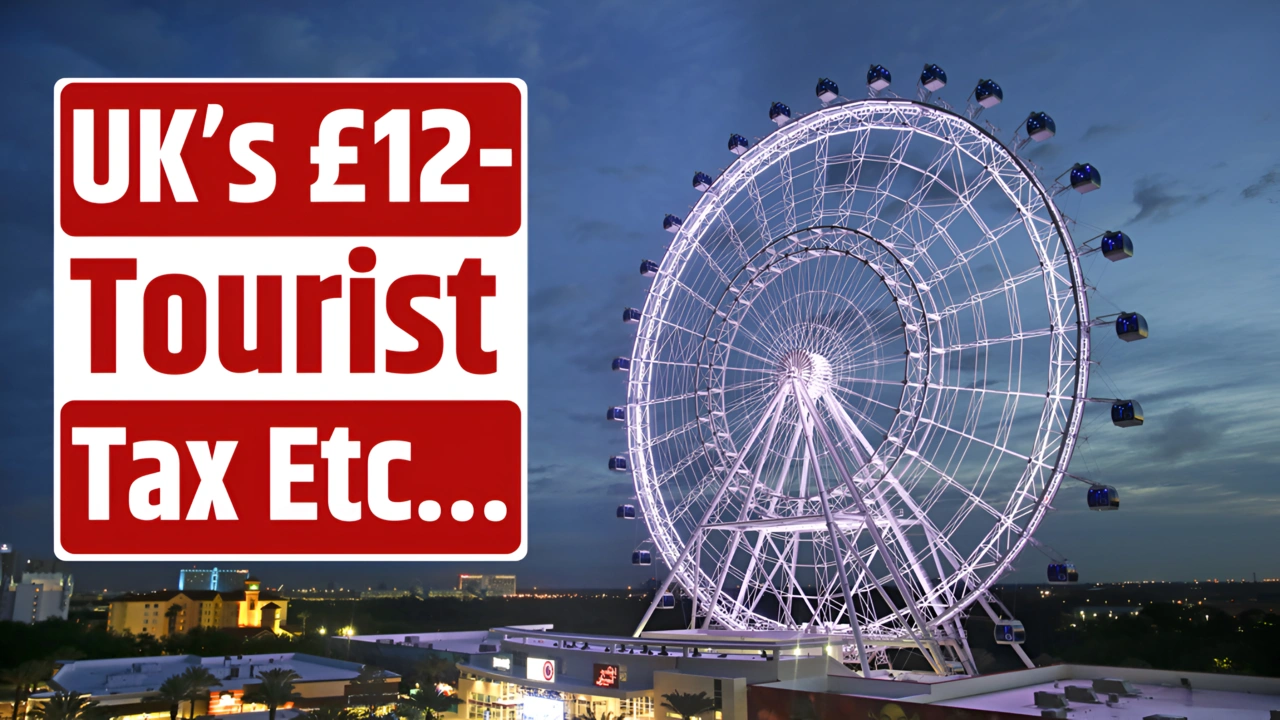Recently, rumors have been swirling about a proposed tourist tax in the UK, where visitors could be charged £12 per night during their stay. This has sparked confusion and debate among travelers, locals, and business owners alike. So, what’s the truth behind this potential tax? Let’s break it down and explore what’s real, what’s fiction, and how this could impact your travel plans.
The Story Behind the Rumors
The idea of a tourist tax in the UK is not new. Cities and regions around the world have long implemented such taxes to help fund local infrastructure, maintain tourist attractions, and support public services. In recent years, the UK has seen growing discussions about whether to introduce a similar levy. The £12-a-night figure, however, is not something that has been officially proposed by the UK government at a national level.
So where did the idea come from? The figure seems to have emerged from proposals put forward by local governments in specific cities, such as Edinburgh and London. These cities have been grappling with the challenges of managing tourism while also ensuring that local residents are not burdened by the influx of visitors. The £12-a-night figure appears to be an estimate based on certain local plans for taxing overnight stays in hotels, short-term rentals, and other accommodation options.
The Proposal for a Tourist Tax
The idea of charging tourists for their stay has gained traction in places like Edinburgh, where authorities have been exploring the concept for several years. Edinburgh, in particular, is one of the UK’s most visited cities, attracting millions of tourists every year. While tourism brings in significant revenue, it also places strain on local resources, from transportation to waste management.
The £12-a-night figure was suggested as a way to address some of these concerns, with funds raised from the tax earmarked for improving city services and maintaining historic sites that tourists frequent. However, it is important to note that the exact amount of the tax has not been finalized, and no formal legislation has been passed to implement such a tax at this level.
What Does This Mean for Tourists?
If a tourist tax were to be implemented, how would it impact visitors to the UK? The most obvious effect would be the increased cost of travel. For a family of four staying for a week, an additional £336 could add up quickly. While this might seem like a hefty sum, it’s worth considering that the money would go toward improving the infrastructure and experiences that tourists value, such as cleaner streets, better public transportation, and enhanced tourist attractions.
Additionally, the specifics of the tax would likely vary from city to city. For example, a tourist tax in London might differ from one in Edinburgh, as local governments would be responsible for determining the exact rates and how the funds are allocated. Some cities might implement a lower rate for visitors staying in less expensive accommodations, while others could target luxury hotels with higher rates.
Are There Any Precedents?
Yes, many countries around the world already implement tourist taxes, and the UK is not the only nation considering such a measure. In Europe alone, cities like Barcelona, Paris, and Amsterdam already charge visitors a nightly fee to stay in hotels or short-term rentals. In some cases, these taxes can range from a few euros to more significant amounts, depending on the city and the type of accommodation.
The argument for such taxes is simple: tourism places a significant burden on local resources, and it’s only fair that visitors contribute to maintaining and improving the services they enjoy. On the other hand, opponents of tourist taxes argue that they could discourage people from visiting certain destinations, especially in a time when the global tourism industry is still recovering from the effects of the pandemic.
The Economic Impact
While the potential introduction of a £12-a-night tourist tax might seem like a small price to pay, it could have far-reaching economic implications. The revenue generated from the tax could support a wide range of initiatives, from environmental sustainability projects to expanding public transportation systems, which in turn could make the city more appealing to future visitors.
However, there’s a fine line between generating revenue and pricing tourists out of a destination. Some local businesses worry that a tourist tax could lead to a decline in visitors, especially those with tighter budgets. In cities like London, where tourism is a significant part of the economy, even a small drop in visitors could have a noticeable impact on local businesses, hotels, and restaurants.
Is It Likely to Happen?
So, will the UK actually implement a £12-a-night tourist tax anytime soon? While there’s no official confirmation, the discussions around such a tax are ongoing, particularly at the local government level. It’s important to remember that any new tax would need to be approved by lawmakers, and public opinion would play a key role in shaping the outcome.
It’s also worth noting that the UK government has shown some reluctance to impose blanket taxes on tourists. The economic impact of tourism is still significant, and any move to introduce a nationwide tax could be met with resistance from businesses and the public. Instead, it’s more likely that individual cities or regions would take the lead on implementing such a tax, similar to what has happened in other European countries.
Conclusion: Fact or Fiction?
In the end, the idea of a £12-a-night tourist tax is not entirely fictional, but it’s not yet a concrete reality either. Local governments in certain cities have considered such a measure, and discussions are ongoing. For now, travelers can rest easy knowing that there’s no nationwide tourist tax in place, but it’s worth keeping an eye on developments in popular tourist destinations across the UK.
As with all rumors and proposals, it’s important to stay informed and separate fact from fiction. The next time you plan a trip to the UK, make sure to check for any updates on local taxes and regulations that might affect your travel budget. While the £12-a-night tax may not be set in stone, it’s clear that tourism is an important issue for many cities, and the conversation is far from over.




